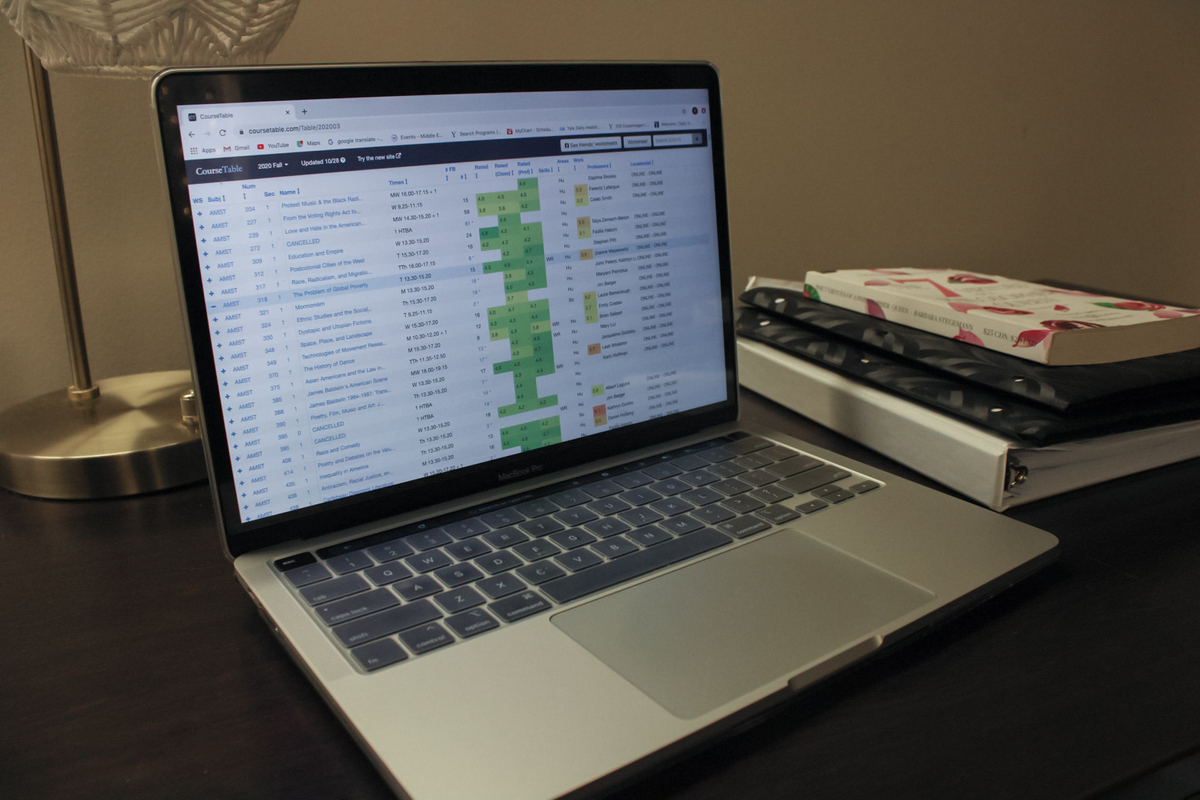Students and faculty reflect on one-week add-drop period without Friday classes
This semester, the University shortened add-drop period to a single week, a move exacerbating concerns brought by last year’s elimination of shopping period.

Yasmine Halmane, Photo Editor
What was once a several-week shopping period has shrunk into a single-week add-drop period at Yale College, prompting some students and professors to express concerns over the course registration process.
This semester, the add-drop period lasted from the beginning of classes on Wednesday, Aug. 31 until the following Wednesday, Sept. 7. Two years ago, then-Dean of Yale College Marvin Chun announced that the traditional shopping period would be scrapped in favor of early pre-registration with an add-drop period at the start of the semester. Rising sophomores, juniors and seniors were required to register for their fall 2021 courses at the end of the spring 2021 semester. The change ignited backlash from students and alumni, who raised concerns that students would not have enough time to choose courses. This semester’s further abbreviation of add-drop period, from 12 days in Spring 2022 to a single week in Fall 2022, has aroused new questions about whether these changes aggravate existing course selection difficulties.
“I’d be very interested in hearing what the reasoning was behind making the add-drop period so short, but none has been offered,” music lecturer Joshua Rosenblum said. “The real culprit is the unnecessary Monday-classes-meet-on-Friday policy right before Labor Day weekend. When I was a Yale student in the early 1980s, that scheduling oddity did not exist, and somehow everything functioned just fine.”
The altered schedule accounting for Labor Day weekend meant that Friday classes did not meet during the add-drop period. For students considering Friday classes, this change was especially frustrating.
Students enrolled in Friday-only courses were in most cases forced to gamble on the value said courses would have for them; the wrong bet could result in a student’s $20 course drop fee and a hole in their semester credits.
Faculty members also raised concerns about the exclusion of Friday courses from the add-drop period, explaining that they hope students feel comfortable committing to taking their course despite never attending it.
To combat this issue, comparative literature professor George Syrimis said he tried meeting with his students before the end of add-drop to ease any anxieties, to get to know his students and to help familiarize them with their potential learning environment.
“The [schedule change] makes Friday courses less appealing precisely because students do not get a chance to try out the courses before committing to them,” Syrimis told the News. “The Monday/Friday switch exacerbates the problem it tries to address.”
Anya AitSahlia ’25 added that some of her classes assigned “normal” workloads that interfered with her ability to try out classes, further adding to the stress of the add-drop period.
“Once you start a class, you’re immediately dropped into the work for it,” AitSahlia said. “And that for me has been a reason to not shop classes, even if they seem super interesting, [because] I would not only have an insane day … going from class to class, but also then be expected to do the work for all of those classes once I’m back home for the night, since normal workload starts day one.”
Still, many students and professors did not express issues with the current add-drop system. Solomon Gonzalez ’23 said that the change did not have much of an effect on his planned schedule and his add-drop period experience.
Add-drop period closed on Sept. 7.







